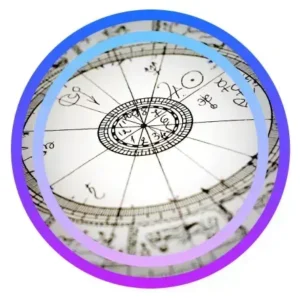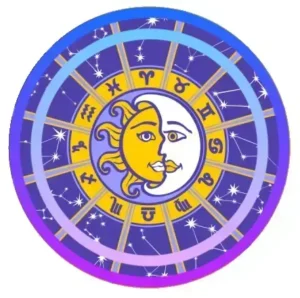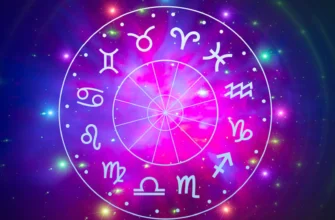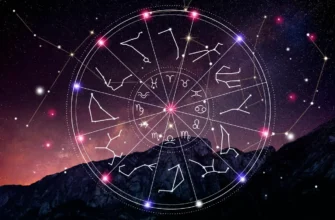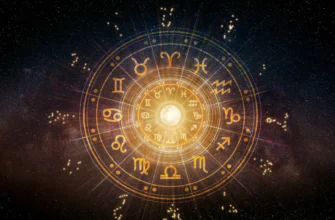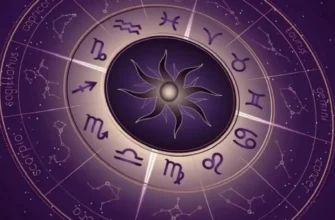Venus trine Mars in synastry is one of the most harmonious and magnetic aspects in relationship astrology, symbolizing effortless attraction and mutual affection. In a synastry chart, this connection blends emotional softness with passionate drive, creating a natural rhythm between desire and tenderness.
The synastry meaning here is deeply romantic — both partners instinctively understand each other’s emotional language and physical needs. Unlike challenging Venus Mars synastry aspects, the trine makes chemistry feel safe, steady, and deeply satisfying. This placement often shows high zodiac compatibility because the individuals can express love without fear of rejection or imbalance. Relationship astrology views Venus trine Mars as a signature of long-term attraction, one that supports intimacy, loyalty, and emotional generosity. Partners feel drawn together not only physically but spiritually, making this one of the strongest indicators of a loving, enduring connection in synastry.
Venus represents love, affection, beauty, harmony, receptivity, values, and the capacity to attract and appreciate pleasure, aesthetic refinement, and harmonious relating in the Birth Chart. Mars embodies desire, action, sexual drive, initiative, physical energy, and the capacity to pursue what one wants through direct engagement and assertive expression. When these planets harmonize through the 120-degree trine aspect, Venus’s loving receptivity perfectly complements Mars’s active pursuit – Mars naturally takes initiative in affectionate gestures and physical connection, while Venus happily receives and appreciates Mars’s advances, creating smooth reciprocal flow where both people feel satisfied, appreciated, and naturally compatible without needing to negotiate, compromise, or struggle with conflicting desires around timing, intensity, or preferred expressions of physical affection and sexual intimacy.
The trine, as astrology’s most favorable aspect for effortless harmony, creates relationship where physical chemistry exists yet doesn’t dominate – both people enjoy touching, kissing, and sexual intimacy yet don’t require constant intensity or frequency to feel satisfied. The relationship emphasizes “everyday intimacy and comfort rather than wild passion” – suggesting mature love recognizing that sustainable partnerships require consistent tender connection more than dramatic passionate episodes that media and cultural narratives overemphasize despite their inability to sustain long-term intimate partnerships through inevitable periods of stress, familiarity, or simple exhaustion preventing constant sexual intensity across decades of shared life.
Beyond Wild Passion: The Wisdom of Everyday Intimacy
“This couple may not engage in intercourse as frequently as those with Venus square Mars, Venus opposition Mars, or Venus conjunct Mars, as they tend to devote more time to intimate interactions such as hugging, kissing, caressing, and tender words.” This distinguishes Venus trine Mars from more challenging or intense Venus-Mars aspects: the trine doesn’t create sexual obsession, constant urgency, or intense frequency characterizing Venus-Mars conjunctions (overwhelming attraction demanding constant expression) or squares/oppositions (friction creating sexual tension requiring release through frequent intercourse attempting to resolve underlying conflicts these challenging aspects create).
Instead, Venus trine Mars creates “broader and more harmonious sexual relationship” – where sexuality encompasses entire range of physical affection, tender touching, sensual pleasure, and emotional intimacy rather than narrowly focusing on genital intercourse as primary or exclusive expression of physical connection. The couple experiences holding hands as genuinely intimate, kissing as satisfying physical expression, cuddling as sexually fulfilling, and affectionate words as important component of their physical-emotional connection rather than merely as foreplay preceding “real” sexual activity they might not even need frequently because broader sensual intimacy continuously satisfies their physical connection needs.
“This harmonious relationship emphasizes everyday intimacy and comfort rather than wild passion” – suggesting mature understanding that “passionate and wild relationships are often unsustainable and fail to bring true intimacy.” The trine enables couples to transcend cultural obsession with intensity and dramatic passion, recognizing that genuine intimacy develops through consistent comfortable connection rather than through episodic dramatic encounters requiring constant novelty, intensity escalation, or performative passion unsustainable across decades of partnership inevitably including periods of illness, exhaustion, stress, or simple familiarity making wild passion impossible or unnecessary when everyday tender connection provides continuous satisfaction.
“Long-married couples can hold hands and kiss not because of passion, but because of intimacy brought about by this broader concept of sex.” This reveals Venus trine Mars’s greatest gift: enabling couples to maintain physical affection and genuine sexual satisfaction decades into partnership after initial passionate intensity naturally subsides – not because passion was superior and its loss represents failure, but because mature intimacy proves more satisfying than intense passion once both people recognize that consistent tender connection sustains partnership better than episodic dramatic intensity requiring constant effort, novelty, or performative energy sustainable only temporarily during relationship’s early honeymoon phase.
When examining romantic compatibility astrology for long-term partnership potential, Venus trine Mars indicates ideal configuration for maintaining physical affection, sexual satisfaction, and intimate connection across decades – making this aspect extremely valuable for people seeking lasting partnerships requiring sustained physical chemistry rather than brief intense affairs burning out once initial passionate novelty exhausts itself through familiarity or life’s practical demands reducing time and energy available for constant sexual intensity.
Mars as Active Initiator: Natural Leadership in Affection
“Whether in romantic relationships or other types of relationships, Mars person tends to be more proactive, such as by holding hands or touching.” The trine creates natural division where Mars initiates physical contact – reaching for Venus’s hand, initiating kisses, suggesting cuddles, or generally taking leadership in expressing physical affection. Venus happily receives these advances, appreciating Mars’s initiative rather than experiencing it as aggressive, invasive, or inappropriately timed as might occur with challenging Mars aspects to Venus where timing, intensity, or style of Mars’s advances conflicts with Venus’s desires or comfort levels.
This natural complementarity prevents common relationship problems around initiation: Mars doesn’t need to suppress natural initiative or wait for Venus to signal readiness (Venus happily receives Mars’s advances when they naturally occur); Venus doesn’t need to constantly initiate despite preferring receptive role or feel neglected when partner fails to pursue them physically (Mars naturally initiates without requiring explicit requests or feeling burdened by expectation). Both people occupy comfortable roles – Mars as active pursuer, Venus as appreciative receiver – without either feeling their natural style gets suppressed, criticized, or proven inadequate through partner’s different preferences or needs.
The proactive quality extends beyond initial courtship into long-term partnership: Mars continues initiating physical affection years or decades into relationship, preventing common complaint that partners stop pursuing each other physically once initial courtship phase ends. Mars’s natural initiative combined with Venus’s genuine appreciation creates positive feedback loop – Mars feels encouraged to continue initiating because Venus responds positively; Venus continues responding positively because Mars’s advances genuinely please rather than feeling burdensome, poorly timed, or requiring reciprocation Venus doesn’t naturally feel inclined to provide.
This doesn’t mean Venus remains completely passive – they might initiate occasionally when particularly moved, might respond to Mars’s advances with enthusiastic participation rather than merely accepting, or might express appreciation verbally or through return touches reinforcing Mars’s behavior. However, primary initiative naturally flows from Mars, relieving both people from negotiating who should pursue whom, from anxiety about rejection when initiating, or from resentment about unequal effort when one person constantly initiates while other merely responds.
Professional Collaboration: Creative Venus Directed by Executive Mars
Beyond romantic contexts, Venus trine Mars creates excellent professional partnerships where “Venus person is more suited to work in art or public relations, while Mars person is more suited to leading Venus.” The trine enables smooth collaboration where Venus provides aesthetic sense, creative vision, diplomatic skill, and public-facing charm, while Mars provides direction, executive decisions, practical implementation, and leadership guiding Venus’s creative talents toward commercially viable or strategically effective applications.
“In design company, if Venus of person in charge of art design forms 120-degree aspect with general manager’s Mars, general manager (Mars) will direct art designer (Venus).” This doesn’t create typical problems plaguing creative-executive partnerships – Mars doesn’t crush Venus’s creativity through excessive control or insensitive direction; Venus doesn’t resist Mars’s leadership as philistine interference contradicting artistic integrity. Instead, both recognize complementary contributions: Venus creates beautiful designs, Mars ensures those designs serve business purposes and practical constraints; Venus generates creative options, Mars selects which to pursue based on strategic considerations; Venus focuses on aesthetic excellence, Mars handles commercial viability and market positioning.
“In film production, Venus person is more suited to acting, while Mars person is more suited to directing.” The actor (Venus) naturally embodies beauty, charm, emotional expressiveness, and capacity to please audiences through aesthetic performance. The director (Mars) naturally provides vision, decisive leadership, practical implementation, and capacity to marshal resources and coordinate efforts toward completing project successfully. The trine ensures smooth collaboration – director appreciates actor’s gifts without attempting to suppress or completely control them; actor accepts director’s leadership without experiencing it as violation of artistic integrity or personal autonomy.
This professional application reveals Venus trine Mars’s essence: not merely romantic or sexual compatibility but fundamental harmony between receptive aesthetic/diplomatic/people-pleasing functions (Venus) and active executive/strategic/implementation functions (Mars). When these energies harmonize through trine, both people occupy natural roles without conflict, resentment, or power struggles that more challenging aspects would create – Venus doesn’t need to compete for Mars’s leadership position; Mars doesn’t need to perform Venus’s creative or diplomatic functions; both appreciate what other provides without feeling threatened, inadequate, or forced into uncomfortable roles contradicting their natural strengths and preferred contributions.
When analyzing business partnership astrology or collaborative work relationships, Venus trine Mars indicates ideal configuration for creative-executive partnerships, artistic-commercial collaborations, or any ventures requiring both aesthetic excellence and practical implementation, both creative vision and strategic direction, both public-facing charm and behind-scenes leadership coordinating efforts toward successful outcomes.
The Sustainable Model: Why This Aspect Enables Lasting Partnerships
Venus trine Mars proves particularly valuable for long-term partnership sustainability because it creates physical chemistry and affectionate connection without requiring constant intensity, dramatic passion, or exhausting frequency that challenging aspects might demand. The couple enjoys physical intimacy yet doesn’t need it constantly to feel satisfied – they can weather periods of stress, illness, travel separation, or simple exhaustion without relationship suffering because everyday tender touches, affectionate words, and comfortable physical presence continuously maintain intimate connection even when full sexual encounters occur less frequently than during early passionate phase.
This recognizes realistic truth about long-term partnerships: constant intense passion proves unsustainable across decades including children, career demands, aging bodies, health challenges, financial stress, and countless other factors reducing energy, time, and inclination for frequent intense sexual encounters. Couples with challenging Venus-Mars aspects might struggle during these inevitable periods – experiencing lack of constant intensity as relationship failure, feeling rejected when partner doesn’t pursue them with initial courtship fervor, or simply growing distant when practical life demands prevent maintaining sexual frequency and intensity that once characterized their connection.
Venus trine Mars couples navigate these challenges more easily because their physical connection never depended primarily on intense passion or frequent intercourse – it developed through everyday comfortable affection that can continue regardless of circumstances preventing full sexual encounters. They can hold hands while watching television, kiss while preparing dinner, cuddle while falling asleep, exchange affectionate touches while passing in hallway, and generally maintain continuous physical connection requiring minimal time, energy, or privacy compared to full sexual encounters requiring all three in quantities often unavailable during life’s demanding phases.
This doesn’t mean Venus trine Mars couples don’t enjoy passionate sex or experience it frequently when circumstances allow – rather, they don’t depend on constant intensity to feel physically connected, making their intimate satisfaction more resilient across life’s inevitable ups and downs than couples whose physical connection requires constant passionate encounters to maintain feeling of attraction, desire, and intimate bonding.
Gender Flexibility and Role Comfort
While traditional interpretation positions Mars as masculine pursuer and Venus as feminine receiver, Venus trine Mars works equally well regardless of gender distribution – woman with Mars trine man’s Venus simply means woman naturally initiates physical affection while man appreciates and receives her advances. The trine ensures both people feel comfortable in their respective roles regardless of whether these align with conventional gender expectations about who should pursue whom physically or who should occupy leadership versus receptive positions in romantic or professional contexts.
This flexibility proves particularly valuable for couples rejecting traditional gender roles, same-sex partnerships where conventional masculine-feminine assignments don’t apply, or individuals whose natural style contradicts cultural expectations about their gender. The trine creates harmony based on planetary energies rather than social conventions – whoever holds Mars energy naturally initiates and leads; whoever holds Venus energy naturally receives and appreciates. Both feel satisfied with this division regardless of gender, sexual orientation, or personal beliefs about proper relationship roles.
The comfort both people experience with natural role division prevents common relationship problems around negotiating who should do what, resentment about unequal effort or initiative, or anxiety about performing roles feeling unnatural or burdensome. Venus doesn’t need to force themselves to initiate more frequently to demonstrate equality or interest; Mars doesn’t need to suppress natural initiative to avoid appearing aggressive or controlling. Both simply do what comes naturally, finding that their natural styles perfectly complement each other without requiring conscious negotiation, behavioral modification, or compromise contradicting authentic inclinations.
The Grace of Natural Compatibility
Venus trine Mars in synastry ultimately represents ideal romantic and collaborative configuration – creating relationships where desire and affection flow naturally without friction, where physical chemistry exists without demanding constant intensity, and where both people occupy comfortable complementary roles serving relationship’s needs while expressing their authentic natures without suppression, compromise, or uncomfortable behavioral adaptations contradicting how they naturally express affection, desire, leadership, or receptivity.
The aspect teaches that sustainable intimacy develops through consistent tender connection rather than dramatic passionate episodes, that mature love recognizes everyday affectionate touches as genuinely satisfying physical expression transcending narrow focus on sexual intercourse as primary intimacy measure, and that truly compatible partnerships feel effortless because planetary geometries create natural harmony rather than requiring constant work overcoming fundamental incompatibilities that more challenging aspects create regardless of conscious intentions or sincere efforts at accommodation.
For those discovering Venus trine Mars in significant relationships through synastry chart analysis, this aspect indicates rare gift of natural physical compatibility requiring minimal effort to maintain across decades – making this configuration extremely valuable for people seeking lasting partnerships where physical affection, sexual satisfaction, and intimate connection continue naturally rather than requiring constant conscious effort, dramatic interventions, or exhausting negotiations attempting to bridge incompatible desires, timing preferences, or fundamental differences in how each person naturally expresses and receives physical affection and romantic love.


